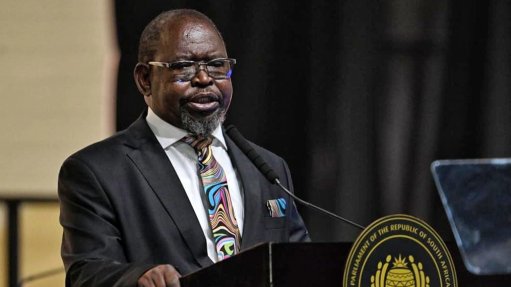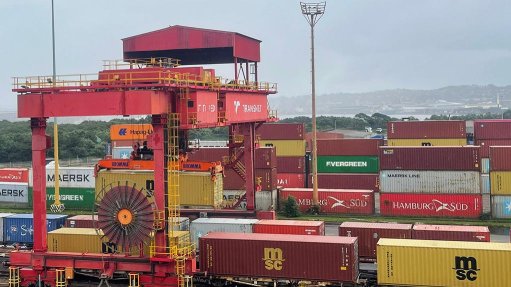South Africa needs to leverage global goodwill at COP28
The upcoming 2023 United Nations (UN) Climate Change Conference, or Conference of the Parties to the UN Framework Convention on Climate Change, more commonly referred to as COP28, will be an important opportunity for South Africa to develop global goodwill in support of the country’s energy transition and translate it into flows of investment to fund the infrastructure needed to transition South Africa’s economy, private sector lobby group Business Leadership South Africa (BLSA) CEO Busisiwe Mavuso has said.
This year’s event will be the twenty-eighth UN Climate Change Conference and is scheduled to be held from November 30 to December 12 at the Expo City in Dubai, in the United Arab Emirates.
“We are a unique country – vulnerable to climate change given our water scarcity and ecology, and yet largely still economically dependent on coal and other fossil fuels. We must transition our economy but do it in a way that ensures justice for those whose jobs and livelihoods are at risk in a transition.
“We must do so while also solving our electricity crisis and lifting the most vulnerable out of poverty. This is a difficult set of objectives to achieve simultaneously, calling for all of us to work together,” Mavuso said in her weekly newsletter on November 27.
South Africa's Just Energy Transition Investment Partnership (JET-IP), first tabled at COP26 two years ago, envisages about $8.5-billion worth of investment support from the world’s largest economies being funnelled into South Africa’s transition.
Mavuso said this vision must be turned into reality in Dubai, with a practical implementation plan that could catalyse investment across the economy. However, she warned that South Africans must be careful not to be overly focused on the JET-IP as though it could solve all problems.
“The $8.5-billion is only a small part of the total investment needed. Indeed, the delegation representing South Africa last week told parliament that an estimated $26-billion to $41-billion is needed every year for Africa alone to implement adaptation actions. The JET-IP must be catalytic in mobilising investment by de-risking projects for normal commercial capital to be able to invest,” Mavuso said.
President Cyril Ramaphosa is expected to lead the South African delegation, with Forestry, Fisheries and the Environment Minister Barbara Creecy and her department driving the agenda.
Apart from consolidating the JET-IP investment, the delegation will be looking to drive momentum on global commitments to support African countries to manage climate risks, including a loss and damage fund to support the most vulnerable countries facing climate disasters and a clearer investment framework to fund adaptation investments across the continent.
“The Department of Forestry, Fisheries and the Environment has done good work to institutionalise our climate transition framework, including the recent Climate Change Bill that will provide a framework for emissions targets across the economy,” Mavuso commented.
While most of the conversations at COP28 were expected to centre on official development funding and concessionary investment by global development finance institutions, Mavuso noted that it was important that the delegation kept the role of the private sector in mind.
“Indeed, in the South African context, it is private sector investment that has been responsible for by far the majority of new renewable energy plants. Our partnership with government to tackle the electricity crisis is seeing massive additional investment by private companies to build generating capacity, almost all of it from renewable sources, saving considerable volumes of carbon dioxide emissions,” she said.
Mavuso noted that whatever global funding could be raised should be used to mobilise private funding if South Africa was to have any hope of getting to the volumes of investment needed. This meant channelling global funding appropriately to derisk projects and ensure they were bankable by the private sector.
Official funding can also support the justice elements of the transition, enabling communities that will be negatively affected by the exit from fossil fuel generation to find new opportunities, and ensuring that the economic development spurred by the transition is effective in reducing poverty.
“As the transition conversation widens in scope and vision, the proven success of public-private partnerships must guide actions. Our green transition provides many opportunities to drive development and growth, from the potential of a new green hydrogen sector to industrialisation across the value chains related to green electricity generation,” Mavuso said.
She added that it would take private sector know-how and capital to turn these visions into reality, with government facilitating that with appropriate regulation that incentivises transition while partnering to catalyse the speed with which investment can flow.
“If government and business work together optimally, our transition ambitions can be achieved. COP28 is an opportunity to solidify global support for the work that must be done,” Mavuso said.
Article Enquiry
Email Article
Save Article
Feedback
To advertise email advertising@creamermedia.co.za or click here
Press Office
Announcements
What's On
Subscribe to improve your user experience...
Option 1 (equivalent of R125 a month):
Receive a weekly copy of Creamer Media's Engineering News & Mining Weekly magazine
(print copy for those in South Africa and e-magazine for those outside of South Africa)
Receive daily email newsletters
Access to full search results
Access archive of magazine back copies
Access to Projects in Progress
Access to ONE Research Report of your choice in PDF format
Option 2 (equivalent of R375 a month):
All benefits from Option 1
PLUS
Access to Creamer Media's Research Channel Africa for ALL Research Reports, in PDF format, on various industrial and mining sectors
including Electricity; Water; Energy Transition; Hydrogen; Roads, Rail and Ports; Coal; Gold; Platinum; Battery Metals; etc.
Already a subscriber?
Forgotten your password?
Receive weekly copy of Creamer Media's Engineering News & Mining Weekly magazine (print copy for those in South Africa and e-magazine for those outside of South Africa)
➕
Recieve daily email newsletters
➕
Access to full search results
➕
Access archive of magazine back copies
➕
Access to Projects in Progress
➕
Access to ONE Research Report of your choice in PDF format
RESEARCH CHANNEL AFRICA
R4500 (equivalent of R375 a month)
SUBSCRIBEAll benefits from Option 1
➕
Access to Creamer Media's Research Channel Africa for ALL Research Reports on various industrial and mining sectors, in PDF format, including on:
Electricity
➕
Water
➕
Energy Transition
➕
Hydrogen
➕
Roads, Rail and Ports
➕
Coal
➕
Gold
➕
Platinum
➕
Battery Metals
➕
etc.
Receive all benefits from Option 1 or Option 2 delivered to numerous people at your company
➕
Multiple User names and Passwords for simultaneous log-ins
➕
Intranet integration access to all in your organisation




















